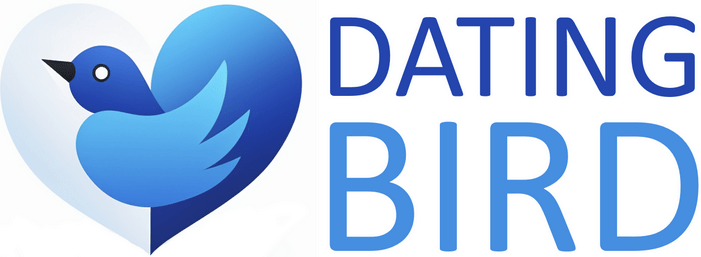Ever wondered, "Am I incapable of a relationship?" or "Why do my relationships always fail?" You're not alone. Failure in relationships can be a disheartening cycle that many of us struggle to break. But, before you label yourself as 'love's lost cause', let's dig a little deeper. Are you truly incapable of a relationship or are there specific factors causing your relationships to fail? This article will shed light on 5 reasons why your relationships might be hitting the rocks. After all, understanding the problem is the first step towards finding a solution, right?


Quick Summary (TL;DR)
- Relationship failure is a complex issue, often caused by a combination of factors such as lack of communication, unresolved past issues, incompatibility, unrealistic expectations, and lack of effort and commitment.
- Online dating can contribute to relationship failure due to the illusion of endless choices leading to choice overload, and the danger of idealising potential partners, creating unrealistic expectations.
- A lack of communication can lead to misunderstandings and resentment, whilst unresolved past issues can heavily influence current relationships, often negatively.
- Incompatibility can cause friction and dissatisfaction, and unrealistic expectations can lead to disappointment and strain within the relationship.
- Lack of effort and commitment can lead to a relationship becoming stagnant or unfulfilling. Overcoming these issues involves improving communication skills, addressing past issues, setting realistic expectations, and increasing effort and commitment.
Our recommendations
IDEAL FOR QUICK, SPONTAENOUS MEETS
Trusted platform for meaningful relationships
- Large worldwide user base increasing variety of potential matches
- Diverse features catering to different interaction styles
- Trustful and well known operator
Scientific approach to long-lasting relationships
- Matches are based on key dimensions of compatibility ensuring lasting connections
- A comprehensive and meticulous sign-up process that increases chances of genuine matches
- Widely recognised and trusted in the dating world
Embrace Love in the Golden Years
- Specifically designed for singles over 50, making it easier to find like-minded partners
- Simple, easy-to-use interface with a wide range of features such as flirts, favourites and virtual gifts
- Organized events available for members to meet in person in a relaxing environment
Table of contents

Understanding the Concept of Relationship Failure
"Relationship failure" – sounds pretty daunting, eh? You might be picturing a giant red "F" stamped across your love life. But hold on, let's not let our imaginations run wild just yet. What we're really talking about here is the simple fact that sometimes, relationships don't work out. And that's okay, folks!
Now, relationship failure isn't like failing a maths test – there's no set score or definitive right or wrong. Heck, it's not even about pointing fingers and blaming someone (or yourself). It's about recognising that things didn't go as planned, accepting the reality, and learning from the experience.
Common misconceptions about relationship failure often involve the idea of fault. Did you know that it's possible for a relationship to fail even when both partners have given their absolute best? Just like a soufflé that doesn't rise despite following the recipe to the letter – sometimes, things just don't pan out.
The impact of relationship failure can ripple through your personal life, affecting your self-esteem, mental health, and even future relationships. Picture it like a stone thrown in a pond - the splash is immediate, but the ripples keep spreading.
Understanding the problem is the first step towards addressing it. It's about acknowledging that relationships fail for various reasons, and it's neither a personal failing nor a life sentence. Think of it as a detour rather than a roadblock on your journey to love.
"Understanding relationship failure is less about blame and more about learning, growing and preparing for future relationships."
So, are you ready to dive deeper and unearth the reasons your relationships might be going belly up? Onwards we go, as we explore the role of online dating in relationship failure. Buckle up, it's going to be an enlightening ride!
The Role of Online Dating in Relationship Failure
Ah, online dating, the digital cupid of our time. It's exciting, isn't it? The thrill of swiping right, the anticipation of a new message, the potential of finding 'the one' without even changing out of your pyjamas. But, as with anything in life, there's a flip side.
Online dating, while a convenient platform to meet potential mates, can also contribute to the failure in relationships. Shocking, right? But bear with me.
Firstly, the sheer volume of potential partners can be overwhelming. It's like being a kid in a candy store, but the candy is potential mates and the store is your smartphone. With so many options, you may find yourself falling into the 'grass is greener' mentality, always questioning if there's someone better out there.
Secondly, online dating can foster a culture of disposability. With a simple swipe, you can dismiss a potential partner. This ease can spill over into your relationships, making it easier to end things at the first sign of trouble. After all, there's always someone else, right?
Thirdly, and perhaps most importantly, online dating can create unrealistic expectations. We've all been guilty of it - creating a mental image of our perfect partner and expecting every swipe to match up. But people aren't perfect, and expecting them to be can lead to disappointment and, you guessed it, relationship failure.
"Online dating can be a great tool in the quest for love, but it can also breed behaviours that contribute to relationship failure."
In essence, while online dating has its benefits, it's crucial to navigate it with a healthy dose of realism. Be aware of the potential pitfalls, and remember that a healthy relationship is built on more than a well-crafted profile.
So, are you ready to delve deeper into the world of online dating and its effects on relationships? Up next, we'll explore the illusion of endless choices. But remember, it's not all doom and gloom. With understanding comes the power to change. Onwards we go!
The Illusion of Endless Choices
Swipe left, swipe right. Online dating has become a sort of 'pick 'n' mix' of potential partners, presenting us with a seemingly endless array of choices. Sounds like a sweet deal, right? Well, not quite.
You see, this illusion of endless choices can actually be more of a hindrance than a help when it comes to finding a meaningful connection. It's like being a kid in a sweet shop, but instead of picking one treat and enjoying it, you're overwhelmed by the variety and end up not choosing anything at all.
What's more, this abundance of choice can lead to what psychologists call "choice overload". This is when you're faced with so many options that making a decision becomes stressful and difficult. In the context of online dating, this can mean constantly second-guessing your choices, questioning whether there might be someone better just a swipe away.
"In the world of online dating, the illusion of endless choices can lead to choice overload, making it difficult to settle on a decision and potentially leading to failure in relationships."
Now, you might be thinking, "What's the big deal? I'll just keep swiping until I find 'The One'." But here's the kicker: this approach can actually hinder your chances of finding a healthy relationship. The constant search for someone better can prevent you from fully investing in a person and developing a deep, meaningful connection.
So, what's the solution to this conundrum? Well, it's all about striking a balance. It's important to be selective, but not to the point where you're unable to make a decision. Try to focus on quality over quantity and remember that no one is perfect.
Remember, the grass isn't always greener on the other side – it's greenest where you water it. So, instead of succumbing to the illusion of endless choices, why not invest time and effort into nurturing the relationships you already have?
Next up, we'll be discussing the dangers of idealising potential partners. But before we do, remember this: in the world of online dating, sometimes less really is more.
The Dangers of Idealising Potential Partners
Okay, let's dive into the deep end of the dating pool, shall we? Have you ever found yourself picturing white picket fences and Sunday morning breakfasts in bed with someone you've only just swiped right on? If you have, you're not alone. But here's the rub: idealising potential partners is a one-way ticket to relationship failure.
Picture this: you meet someone online, and they seem as perfect as a cup of tea on a rainy British afternoon. But remember, just like those Instagram influencers with their perfectly curated lives, what you're seeing might not be the whole story.
Online dating encourages us to create mental montages of perfect moments, ignoring the reality that every person is a mix of strengths and weaknesses, just like us. Who hasn't embellished their travel adventures or conveniently forgotten to mention their unhealthy obsession with collecting garden gnomes?
"Idealisation is the perfect recipe for disappointment. It's like expecting a full English breakfast and getting a single piece of unbuttered toast."
So, how do we tackle this issue? It's simple, really. Take off those rose-tinted glasses and see potential partners for who they truly are. Remember, a healthy relationship is based on acceptance and understanding, not unrealistic expectations.
Now, hold on to your teacups, because we're about to delve into the five common reasons why relationships fail. Spoiler alert: idealising potential partners is just the tip of the iceberg.

5 Common Reasons for Relationship Failure
You've heard it before, relationships are complicated, right? But what if I told you that there are a few common culprits behind why many relationships fail? Buckle up, because we're about to dive into these reasons and, hopefully, arm you with some insight to avoid these pitfalls in your future endeavours.
H3 Lack of Communication
Ever tried building a puzzle without looking at the picture on the box? That's what a relationship without communication feels like. When we don't talk, misunderstandings brew, resentment builds, and the relationship can crumble. Communication is the lifeblood of a relationship, and without it, things can quickly head south.
H3 Unresolved Past Issues
We all carry baggage from our past relationships, but sometimes, this emotional luggage can weigh us down in our current relationships. Unresolved issues can lead to distrust, insecurity, and a lot of unnecessary drama.
H3 Incompatibility
Just like oil and water, some people just don't mix. Differences in values, life goals, or even the simple day-to-day habits can lead to a clash, causing the relationship to fail. It's crucial to find the middle ground, but sometimes, the differences are just too vast.
H3 Unrealistic Expectations
Expecting your partner to be your knight in shining armour or your damsel in distress all the time? That's a fast track to disappointment city. Unrealistic expectations can put undue pressure on both partners, leading to resentment and, eventually, a failed relationship.
H3 Lack of Effort and Commitment
Relationships aren't a one-way street. They require effort and commitment from both sides. When one partner is left doing all the heavy lifting, it can lead to burnout and eventual relationship failure.
"Understanding why relationships fail can be the first step towards building a successful one."
Now that we've identified these common causes, you might be wondering, "What's next?" Well, stay with me as we navigate the choppy waters of tackling these issues, starting with the biggie: communication. Because, after all, who wants to build a puzzle blindfolded?
Lack of Communication
Ah, communication. That magical word that seems to hold the key to a successful relationship. Have you ever been on a date where you spent more time deciphering your partner's ambiguous text messages than actually enjoying their company? If so, you've experienced first-hand the impact of poor communication on relationships.
Indeed, lack of communication is a major culprit in relationship failure. It's like navigating the London Underground without a map, or worse, without Google Maps. You're bound to get lost, right?
Now, before you start panicking and download every self-help book on communication, let's break this down. Communication isn't just about talking; it's about understanding. It's about knowing when to talk, when to listen, and when to simply give a comforting hug.
But here's the kicker: not everyone communicates in the same way. Some of us are chatterboxes, while others are more like a well-guarded fortress. The trick is finding a middle ground where both parties feel heard and understood.
"Communication is like oxygen to relationships. Without it, they wither and die."
So how can we breathe life back into our relationships? Start by identifying your communication style. Are you direct or do you beat around the bush? Do you listen actively or are you busy formulating your response? Once you understand your style, you can work on improving it.
Remember, communication is a two-way street. It's not just about expressing yourself, but also about understanding your partner. And sometimes, this means reading between the lines. After all, the most important things in life are often left unsaid.
Now, get out there and start communicating! And speaking of communication, let's move on to another issue that often gets swept under the rug: unresolved past issues. But that's a story for another day. For now, let's just say, a bit of self-awareness can make all the difference in the world.
Unresolved Past Issues
Alright, let's dive into the murky waters of unresolved past issues. We all have a history, right? Some of it is as delightful as a picnic on a sunny day, and some is as enjoyable as stepping on a Lego brick in the middle of the night. But here's the kicker: those unresolved issues from our past can sneak into our present relationships like uninvited party crashers.
Ever noticed how an innocent disagreement can quickly escalate into a full-blown argument? That's often because of unresolved past issues acting as emotional triggers. These triggers can cause us to react disproportionately to the situation at hand, putting a strain on our relationships and leading to a failure in relationships.
Now, you might be thinking, "How do I identify these past issues?" Well, it's akin to detective work. Start by reflecting on your past relationships and any patterns of conflict or emotional responses that seem to recur. Yes, it's a bit like doing a jigsaw puzzle with pieces from different boxes, but trust me, it's worth it.
Addressing these issues can be as simple as acknowledging their existence, but often it requires a bit more work. Seeking professional help, like a life coach or therapist, can provide the tools and emotional support needed to navigate these choppy waters.
Healing from past traumas is a journey, not a destination. It's like climbing a mountain - it's tough, and you might get a few scrapes along the way, but the view from the top is pretty spectacular. And in this case, the view is a healthier, happier future relationship.
"Unresolved past issues can be like uninvited party crashers in our relationships. Identifying and addressing these issues is key to preventing relationship failure."
Alright, we've tackled the past. Now, let's move forward and discuss a common stumbling block on the road to relationship bliss: incompatibility. Because let's face it, you can't force a square peg into a round hole, can you?
Incompatibility
Here's a little secret, folks: we're all a bit like puzzles, with our own unique shapes and grooves. Sometimes, no matter how much you want to, you just can't make two pieces fit together if they're not meant to. And that's okay! It's the same with relationships. So let's dive into this puzzle of incompatibility, shall we?
Incompatibility in a relationship is like trying to mix oil and water — it just doesn't work. You might both be lovely as a peach, but if your core values, life goals, and personality traits clash, it can lead to the dreaded failure in relationships. Ever tried to watch a comedy movie with someone who only enjoys horror? Yeah, it's a bit like that, but on a bigger scale.
Now, don't get us wrong. Differences can be good. They add spice to life and can help us grow. But when they're fundamental differences, they can lead to constant conflict, frustration, and even relationships fail as a result. Imagine being a die-hard vegan in love with a dedicated meat-lover. You might manage for a while, but it's likely to cause tension in the long run.
So how do we identify incompatibility? It's not always as obvious as our vegan and meat-lover example. Sometimes, it's about recognising patterns of constant conflict, dissatisfaction, or the feeling of being misunderstood. It's about realising that you're constantly trying to change each other or feeling like you're living parallel lives.
Addressing the issue can be tough. It might involve difficult conversations and self-reflection. It's essential to be honest with yourself and your partner. Remember, it's not about blaming each other but recognising that perhaps, you're just not the right fit.
But fear not, dear readers! Incompatibility isn't a life sentence of failed relationships. It's an opportunity to find someone who fits with you like the last piece of a puzzle. Someone who shares your vision of a healthy relationship, respects your individuality, and complements you in every way.
Remember, in the grand jigsaw puzzle of life, every piece has a place. So, don't force it. Your perfectly compatible partner could be just around the corner.
And what about unrealistic expectations? Are they the silent killer of relationships? Well, let's dive into that next, shall we? But hold on to your hats, because it's going to be a bumpy ride!
Unrealistic Expectations
We've all been there, haven't we? Dreaming of the perfect partner who always understands us, never argues, and somehow knows we fancy a cup of tea without us having to utter a word. Sounds like a dream, doesn't it? But here's the thing: it's just that, a dream. And it's this kind of unrealistic expectations that often leads to failure in relationships.
Let's face it, no one is perfect. We all have our quirks and flaws. So, expecting a partner to be flawless is like expecting a sunny day in the UK without a single cloud in the sky - it's rare, to say the least!
The impact of unrealistic expectations on relationships is often underestimated. It can create a constant sense of dissatisfaction, leading to tension and, ultimately, the end of the relationship. It's like trying to fit a square peg in a round hole - it just doesn't work.
"Unrealistic expectations in a relationship are like a hidden time bomb, ticking away until it eventually explodes."
Identifying unrealistic expectations can be tricky. It's like trying to spot a chameleon in a jungle - they're well camouflaged! But here are a few signs: You find yourself often disappointed in your partner, you're constantly comparing your relationship to others, or you believe your partner should know your wants and needs without you expressing them. Ring any bells?
Addressing the issue of unrealistic expectations requires a good dose of reality check. It's about understanding that a healthy relationship doesn't mean a perfect one. It's about accepting your partner's imperfections and loving them regardless. It's about finding a middle ground between what you desire and what is actually achievable.
Setting healthy expectations is crucial for a successful relationship. It's like setting the right temperature for a perfect cup of tea - not too hot, not too cold, just right. So, consider what's really important in a relationship. Emotional support? Shared interests? Mutual respect? These are realistic expectations that can foster a strong, lasting relationship.
So, let's toast to setting realistic expectations and avoiding another failure in relationships. But remember, it's not just about expectations. Effort and commitment play a crucial role too. But we'll get to that. After all, Rome wasn't built in a day, was it?
Lack of Effort and Commitment
You know that saying, "It takes two to tango"? Well, it's not just a catchy phrase to show off your dance moves at a party. It's the essence of any successful relationship. And guess what? It requires effort and commitment.
You might be thinking, "Well, I am committed. I am putting in the effort!" But are you? Really? Are you actively working on your relationship, or are you just coasting along, expecting it to magically work itself out?
Relationships aren't like a Netflix series that you can just put on autoplay and forget about. They're more like a delicate soufflé that needs constant attention and careful handling. Leave it unattended, and, well, let's just say the results won't be pretty.
So, if you're finding that your relationships are more like a deflated soufflé than a flourishing garden, it might be time to take a closer look at your levels of effort and commitment.
"Relationships require work – consistent, dedicated, and sometimes challenging work."
Consider this: Are you actually dedicating time to your relationship? Or is it taking a backseat to work, friends, hobbies, or (dare we say it) your latest Netflix binge?
And when it comes to commitment, are you truly in it for the long haul? Or are you always keeping one eye on the door, ready to bolt at the first sign of trouble?
If any of this is ringing alarm bells, don't panic just yet. Recognising these issues is the first step towards addressing them. And the good news is, improving your effort and commitment is entirely within your control.
So, how about we tango our way out of this relationship rut? In the next section, we'll dive into some practical tips and advice on overcoming relationship failure. And yes, it will involve some effort and commitment on your part. But remember, the sweetest victories are those hard-earned.
Stay with me, friend. Let's turn this relationship failure into a success story. After all, who doesn't love a good comeback?
Overcoming Relationship Failure: Practical Tips and Advice
Well, here we are, standing on the precipice of a new chapter in our relationship journey. Ready to dive into the nitty-gritty of overcoming relationship failure and finding that sweet success in love? Let's get cracking!
First off, let's remember that failure in relationships isn't the end of the world. It might feel like it, but trust me, it's not. It's simply a sign that something needs to change. So, how do we go about making these changes and improving our relationships?
For starters, we need to get to grips with our past failures. Yes, I know it's about as appealing as a soggy sandwich, but it's crucial. Understand what went wrong, why it went wrong, and how you can avoid making the same mistakes. Were there unrealistic expectations? A lack of effort and commitment? Identifying these issues is the first step towards a healthier relationship.
Next, we need to embrace change. If you keep doing what you're doing, you'll keep getting what you're getting. So, let's shake things up a bit! Implement new strategies, try different approaches, and be open to new ideas. Remember, change is the spice of life and can make all the difference in your relationships.
Finally, we need to invest in ourselves. Before we can be part of a successful relationship, we need to be successful as individuals. Work on boosting your self-esteem, improving your mental health, and finding that all-important middle ground between self-care and caring for others.
Remember, overcoming relationship failure isn't a sprint, it's a marathon. It takes time, effort, and a whole lot of patience. But with the right approach and mindset, you can turn your relationship failures into stepping stones for success.
Now, let's roll up our sleeves and delve into the first practical tip: improving communication skills. But don't worry, I'm not going to leave you hanging with some vague advice about "communicating better". We'll get into the specifics, giving you practical, actionable tips to take your communication skills from "meh" to "marvellous". Ready? Let's dive in!
"Overcoming relationship failure isn't a sprint, it's a marathon. But with the right approach and mindset, you can turn your relationship failures into stepping stones for success."
Improving Communication Skills
Ever wondered why your relationships always seem to hit rocky waters? Well, it might be time to reflect on your communication skills. Yes, you heard it right! Communication, or the lack thereof, can often be the iceberg to our Titanic-like relationships.
Let's start with a simple truth: we're not all born great communicators. But hey, don't let that deter you. Like any other skill, communication can be improved with a bit of practice and patience. So, how can you turn your communication skills from a mere whisper to a confident roar? Buckle up, as we delve into some practical tips.
Listen Actively: Remember that communication is a two-way street. It's not just about your words but also about understanding others. So, lend an ear, show interest, and avoid interrupting. Believe it or not, this could make all the difference in your relationships.
Express Clearly: Don't leave room for guesswork. Be clear and concise with your words. If you're upset, say it. If you're happy, show it. Remember, your partner isn't a mind reader.
Show Empathy: Understand the other person's perspective. It's not about winning an argument but about understanding each other better.
Use 'I' Statements: Instead of saying "You never listen," try "I feel ignored when my opinions are overlooked." This reduces blame and encourages discussion.
Practice Patience: Rome wasn't built in a day, and neither will be your communication skills. Be patient, keep trying, and you'll see improvement.
"Improving communication is like learning a new language. It might be challenging at first, but once you get the hang of it, it can open doors to a whole new world of understanding."
Implement these changes step by step. You'll soon see a positive shift not only in your relationships but also in your self-esteem.
Remember, communication is the bridge that connects hearts. So, let's start building that bridge, shall we? But hold on, we're not done yet. Up next, we'll explore how to address past issues that might be haunting your present relationships. Stay with us!
Addressing Past Issues
Ever wondered why the ghost of past relationships keeps popping up in your present love life? Well, it's because unresolved past issues can cast a long shadow, causing failure in relationships. But don't worry, we're here to help you exorcise those ghosts and move forward towards a healthier love life.
First off, let's acknowledge that we all carry emotional baggage. It's like that old suitcase in the attic, filled with memories and experiences, both good and bad. But if we don't unpack and sort it out, it can weigh us down and prevent us from moving forward into a new relationship. So, how do we do this?
Well, it's a bit like spring cleaning. Start by identifying the issues from your past relationships that could be affecting your present one. Is it trust issues? Fear of commitment? Or perhaps, unresolved feelings for an ex? Once you've identified these, you can start to work on them.
This might involve seeking professional help such as a life coach or therapist. They can provide tools and strategies to help you address these issues and heal from past traumas. It's a bit like having a personal trainer, but for your emotional health.
Implementing these changes won't be easy, and it will take time. But remember, Rome wasn't built in a day, and neither is a healthy relationship. You'll start to see results as you learn from past mistakes and avoid repeating them.
"Healing from past traumas is not about forgetting, it's about learning and growing."
Finally, moving forward means accepting that past relationships have failed, but that doesn't mean you're doomed to repeat the same pattern. Each failed relationship teaches us something about ourselves and what we want in a partner. So, use these lessons to build a stronger foundation for your future relationships.
In the next section, we'll be discussing how to set realistic expectations in a relationship, so you don't end up expecting a Hollywood rom-com when you're living in a BBC drama. After all, a successful relationship is built on realistic expectations, not fairy tale fantasies. So, shall we continue?
Setting Realistic Expectations
So, you're ready to set realistic expectations in your relationships, eh? Brilliant! Let's get started.
First off, let's acknowledge that setting realistic expectations is like finding the perfect cup of tea. It's going to vary from person to person, but there's a basic recipe to follow. You wouldn't expect a cup of tea to cook your dinner, would you? Sounds ridiculous, right? It's the same with relationships. You can't expect your partner to fulfil every need and want.
"A relationship is a partnership, not a one-stop shop for all your needs."
Now, how do you set these expectations? Well, it starts with you. Understand your needs, your wants, and your deal-breakers. Remember, it's okay to have standards, but they should be realistic. Expecting your partner to look like a film star, be a gourmet chef, and also have the wisdom of a life coach might be setting the bar a bit too high, don't you think?
Next, communicate these expectations to your partner. Keep in mind, good relationships are built on mutual understanding and respect. If you're expecting them to read your mind, then you're on the fast track to a failed relationship.
"Clear communication is the cornerstone of a healthy relationship."
Now comes the tricky part - accepting that your partner won't meet all your expectations and that's okay. Remember that eharmony review? It mentioned that authentic connections are built on more than just ticking boxes.
Finally, review and adjust your expectations as your relationship grows. Just like you, your relationship isn't static. It evolves, and so should your expectations.
And there you have it! That's the basic recipe for setting realistic expectations in your relationships.
In the next section, we'll be exploring another crucial ingredient for a successful relationship - effort and commitment. Because let's face it, a relationship without effort is like a cup of tea without water. It just doesn't work. Stay with me, we're brewing something good here!
Increasing Effort and Commitment
Ah, effort and commitment, the secret sauce to any successful relationship. But, wait a minute, why is it so secret? It's not like it's a hidden code in a Dan Brown novel. It's there, clear as day, yet somehow, it often gets overlooked.
Let's set the record straight, shall we? Effort and commitment are essential in relationships. They are the glue that holds the beautiful mess of love, compatibility, and communication together.
Think about it. You wouldn't expect to get fit without putting in some effort at the gym, would you? Similarly, you can't expect a relationship to flourish without putting in some elbow grease.
So, how can you increase effort and commitment in your relationships? Here's a little cheat sheet for you:
Be present: This is not about just being physically present (although that helps too!). This is about being emotionally and mentally present. Listen when your partner speaks. Show interest in their thoughts, feelings, and experiences. Remember, love is in the details.
Show appreciation: A simple 'thank you' or 'I appreciate you' can make all the difference. It shows that you don't take them for granted and that you value their contribution to your life.
Communicate openly: Express your feelings, needs, and expectations. Don't expect your partner to be a mind reader (unless they're Professor X, in which case, lucky you!).
Compromise: Remember, it's not about winning an argument; it's about finding a middle ground that satisfies both parties.
Invest time: Relationships are like plants; they need regular watering. Spend quality time together to nurture your bond.
Now, these tips won't magically transform your relationships overnight. But remember, Rome wasn't built in a day. Implement these changes gradually, and over time, you'll start seeing results.
"Effort and commitment in relationships are like the wind in a sailboat. You can't see them, but you can certainly feel their impact."
So, are you ready to steer your relationship ship towards success? I bet you are! Let's dive into the conclusion and wrap up this journey of understanding why relationships fail. And, more importantly, how to make them work. Stay with me, matey!
Conclusion: Overcoming Relationship Failure and Finding Success in Love
In conclusion, it is vital to understand that you are not incapable of maintaining a relationship. However, certain habits or patterns may be hindering your success. Firstly, a lack of self-awareness and understanding can create a barrier to forming a deep connection with another individual. Secondly, the fear of vulnerability and opening up can lead to a lack of emotional intimacy. Thirdly, holding onto past baggage and unresolved issues can prevent you from fully investing in a new relationship. Fourthly, unrealistic expectations can set a relationship up for failure before it even begins. Lastly, poor communication can lead to misunderstandings and unmet needs. It's essential to address these issues, possibly with the help of a professional if needed, to pave the way for healthier and more successful relationships in the future.

FAQ
Question: Am I incapable of a relationship because my past relationships have failed?
Question: How does online dating contribute to relationship failure?
Question: What role does communication play in relationship failure?
Question: How can unresolved past issues impact my current relationship?
Question: What does incompatibility mean and how can it lead to relationship failure?
Question: How can unrealistic expectations lead to relationship failure?
Question: How does lack of effort and commitment contribute to relationship failure?
Question: How can I overcome relationship failure and find success in love?
Related articles
Articles with related questions
Further information on terms of this article
Written by:
 Liam
Liam is known for his balanced views on which dating apps are best for whom.
Liam has been married for 15 years. Why does he still test partner portals and online dating apps as an editor? Because he is constantly asked for advice among his friends and can obviously provide very good information about the advantages and disadvantages of each. He is always able to explain complex topics in an easy-to-understand manner and in plain language.
Liam
Liam is known for his balanced views on which dating apps are best for whom.
Liam has been married for 15 years. Why does he still test partner portals and online dating apps as an editor? Because he is constantly asked for advice among his friends and can obviously provide very good information about the advantages and disadvantages of each. He is always able to explain complex topics in an easy-to-understand manner and in plain language.




